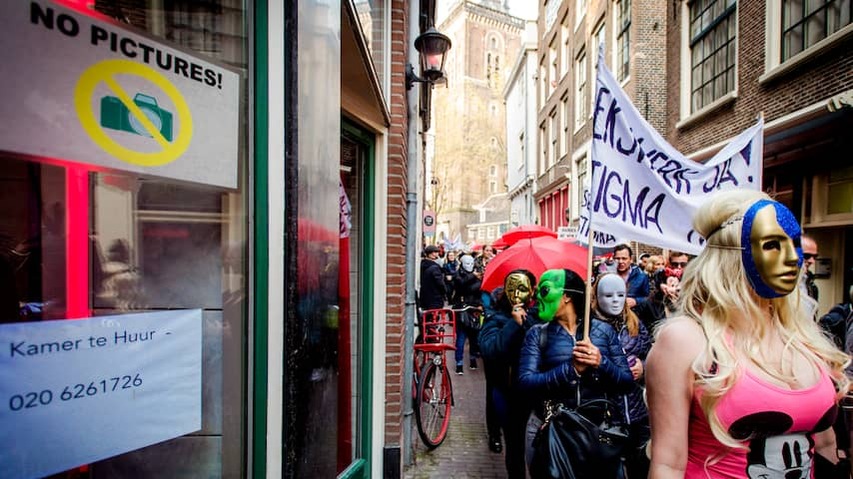
Sex workers should have easier access to opening an account and taking out insurance. The professional group has made agreements about this together with banks and insurers. But in practice, little comes of it.
Nationale-Nederlanden (NN) announced at the beginning of 2024 that sex workers could take out two types of insurance with the insurer from that year: a liability insurance and an inventory and goods insurance. Sex workers called it an “important step in destigmatizing” the professional group. Yet hardly anyone uses it.
No more than ten liability insurances have been taken out in the past sixteen months, an NN spokesperson tells NU.nl. “The inventory and goods insurance has not been taken out at all.”
The insurer does not know why hardly any sex workers take out insurance. “Most other groups of entrepreneurs take out more insurance,” says the spokesperson. NN wants to continue to offer the insurance and wants to see if the services can be expanded for sex workers.
The reporting center for sex workers does have a suspicion as to why so few sex workers are insured. “The digital route does not work for sex workers, so they have to contact us personally,” says a spokesperson.
“The threshold for applying for insurance then becomes quite high.” According to NN, all customers for that type of insurance have to go through an insurance advisor, and that has nothing to do with the target group.
‘New excuse from the banks’
Opening business accounts is also not a success. Agreements with the banking sector from 2023 have “changed nothing,” says Irina Hornstra of the Sex Work Alliance Destigmatization (SWAD). “Banks are closing access to normal social services.”
In 2023, it was agreed that banks would ask less difficult questions if a sex worker shows proper administration, such as a tax or VAT return and registration with the Chamber of Commerce. Furthermore, sex workers may deposit a maximum of 100,000 euros in cash per year.
“Then the banks found another excuse,” says Hornstra. “They ask sex workers for a permit, knowing that the permit will not come anyway. That process is very expensive and risky for sex workers.”
A Bank Can Receive HIJK FINES
Permit is Difficult to Obtain
Municipalities decide for themselves whether sex workers are allowed to work at home without a permit. In some cities, such as Rotterdam, Tilburg and Utrecht, they no longer need to have this permit. The banks are cooperating with this, says Hornstra. But in most places a permit is mandatory.
To obtain a permit, sex workers have to overcome a number of hurdles. “Often no more permits can be obtained in the municipality. Furthermore, requirements are set for the house, such as an emergency exit and a fire extinguisher. These requirements are not set for the nail stylist or lawyer working from home,” says Hornstra.
There are also risks attached to this permit application. “If municipalities click and tell the housing association that sex work is being carried out, the housing association can terminate the lease immediately.”
Banks are also obstructive
Hornstra, who also works as an escort herself, has experience with “a very nasty process” with the bank. “They ask all kinds of questions and you never hear whether it is good.”
While a lot is at stake for her. “If I no longer have a business account, my customers can no longer pay with a pin,” she explains. “I always ask new customers to transfer part of the bill in advance. Alternative solutions are just outside what is normal and legally acceptable.”
In 2023, the then cabinet came up with a plan to strengthen the social and legal position of sex workers. Because there are many prejudices about sex work, sex workers are more likely to be excluded from, for example, a mortgage or bank account. Sex workers also experience discrimination in healthcare and at the police.